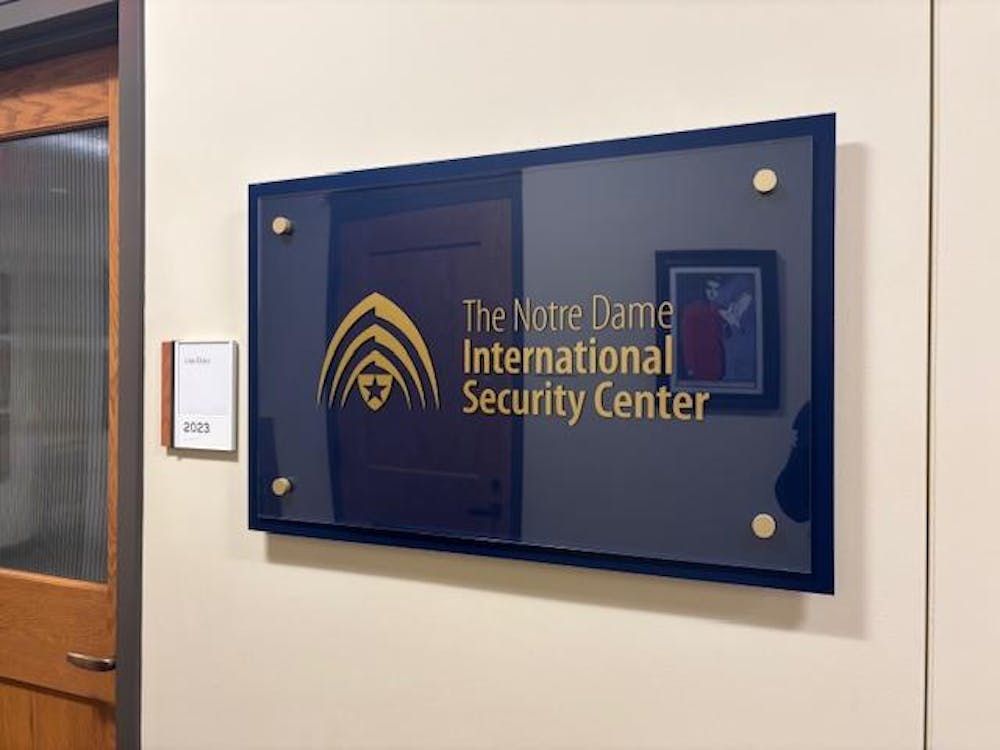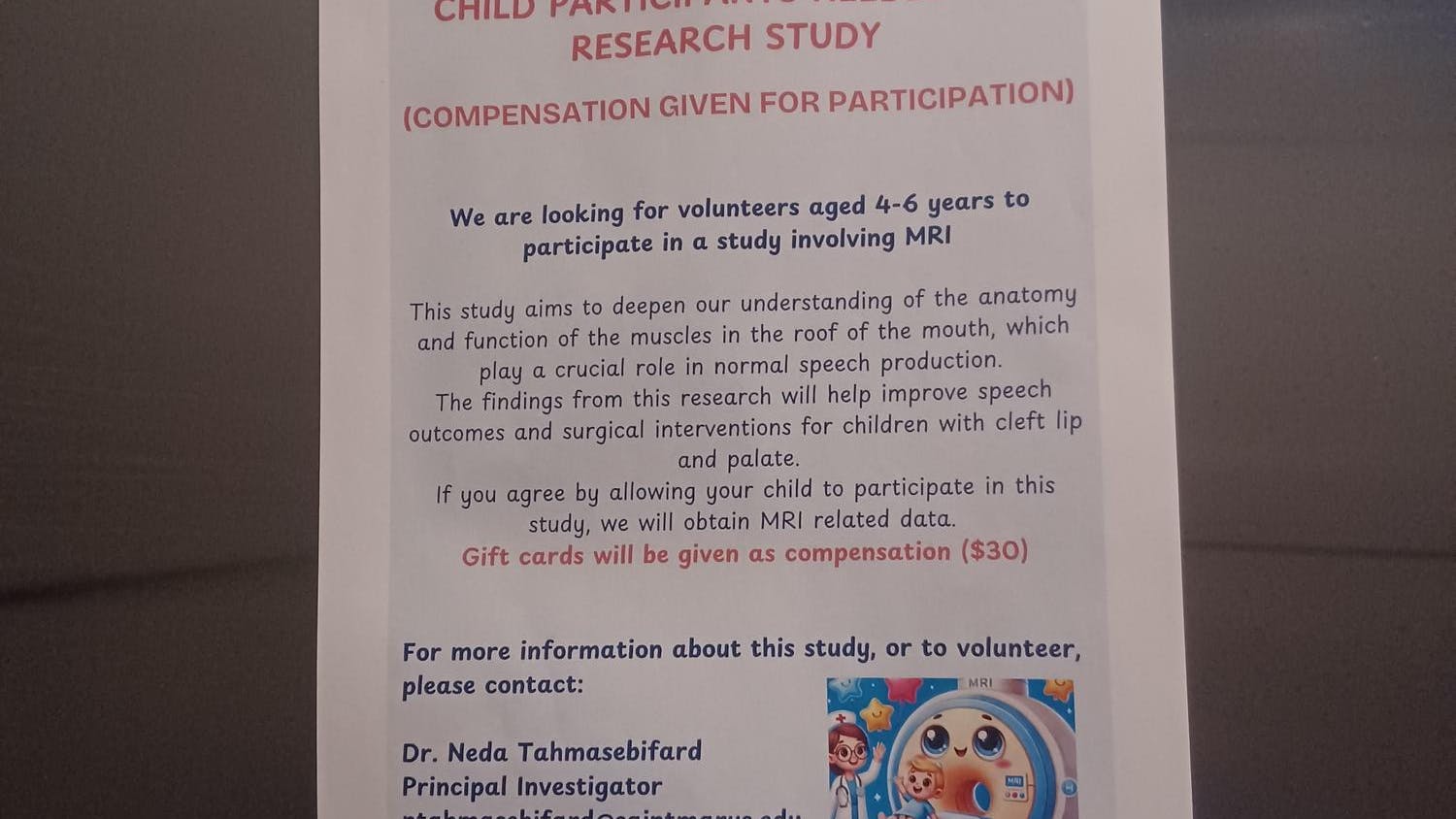On Monday, March 24, editor in chief of The Atlantic Jeffrey Goldberg revealed that he had been mistakenly added to a private group chat that included top-ranking members of the Trump administration, such as Vice President JD Vance and Secretary of Defense Pete Hegseth, among others. According to Goldberg, the group chat revolved around plans for an American attack on the Houthis in Yemen.
The Houthis, an Iran-backed terrorist organization that controls most of Northern Yemen, including the capital, Sanaa, have threatened and significantly disrupted the sea routes in the Red Sea, disturbing trade throughout the region. In a public statement, the White House announced it had conducted large-scale strikes against the Houthis to respond to these actions. Professor of military history Ian Johnson, who also serves as co-director of the Notre Dame International Security Center (NDISC), provided context regarding the importance of the Red Sea.
“My understanding is that about 12 to 14 percent of global trade goes through the Suez Canal, it is the fastest shipping route from South and East Asia to Europe,” Johnson wrote in an email to The Observer. “Closure of the Canal in the past has added up to two weeks for ships heading from the Indian Ocean to European ports … It is particularly vital for Europe as it is the most significant route for energy imports from the Middle East, especially with current disruptions to oil and natural gas exports from Russia.”
The group chat, the full contents of which Goldberg published two days following his initial article, took place on the Signal messaging app. In addition to discussions on how and when to conduct the Houthi strikes, it detailed operational plans, such as specific targets, weaponry to be used and precise attack timelines. Group chat members also discussed the role of American allies in Europe, displaying frustration over Europe's perceived reliance on U.S. military support.
Johnson commented on the historical context of leaks within U.S. national security.
“Leaks within the U.S. government are common, often used by mid-level staffers to try and sway or influence policy,” he wrote. “From the Yalta Papers to the Pentagon Papers to the recent U.S. diplomatic cable leaks, this has been a frequent occurrence in modern U.S. history.”
Despite the relative historical regularity of leaks within the federal government, concerns about the exchange arose. They revolved around the use and sharing of classified information via the Signal app, which is typically not utilized to handle such information. Professor Dan Lindley, NDISC associate director, expanded on the matter.
“I don't know about the general government, but I can tell you that it's unwise to use [Signal] for classified information,” Lindley said. “It's extremely unwise when there are so many different ways to communicate classified information with secure, compartmentalized facilities.”
Signal's use has raised questions surrounding the security of shared intelligence with key intelligence allies such as the Five Eyes. When asked about whether these leaks could impact allied intelligence coordination, professor of political science and NDISC member Joseph Parent had one word.
“Easily,” Parent wrote. “It could compromise the safety of our soldiers and our sources and methods of intelligence.”
The leak also provided insights into the Trump administration's broader foreign policy perspective. One theme that emerged was frustration with America’s European allies, whom several chat members felt were not pulling their weight. Vice President Vance, in particular, expressed concerns throughout the conversation, writing that just “3 percent of US trade runs through the Suez,” while “40 percent of European trade does.”
“It's a view that we're doing them a service,” Lindley said. “And there's some truth to that argument, but there's also some truth to the argument that we're protecting the global commons to help free trade. As a general principle, the things that look like we're sacrificing and being overly generous on, in the long term, really redound to our benefit.”
Another interesting dynamic that seemingly emerged from the conversation was differing opinions on whether to conduct or delay the strikes. Though Secretary of Defense Hegseth indicated a willingness to strike immediately, the vice president displayed hesitancy, concerned they were “making a mistake” by conducting the strikes.
Parent did not find this a concerning, saying, "It's a natural and normal part of policymaking."
Johnson viewed it as an important distinction to draw between certain administration members.
“I think the text of the Signal exchange highlights the major division on foreign policy within the Trump Administration,” Johnson wrote. “Between those, like Vice President Vance, who think the US is doing too much in the world and should expect its partners and allies to do more and those, like Secretary Hegseth, who argue that the U.S. needs to continue to police much of the globe alone, if necessary.”










